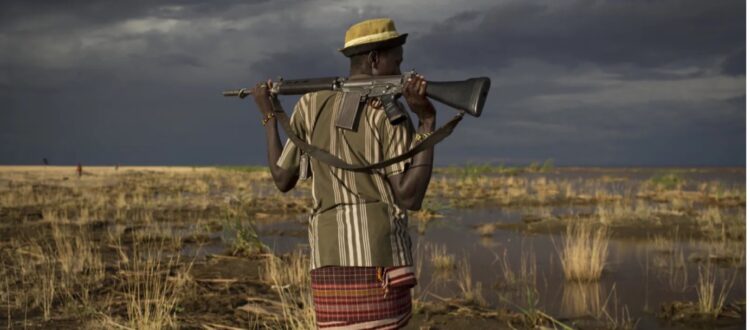A CALL FOR JUSTICE IN CONFLICT ZONES: HUMANITARIAN AID AND CLIMATE FINANCE
In parallel with the negotiation goals, other cross-cutting issues are also emerging at the Bonn intermediates which help to outline the effective nature of future COPs. For example, an event was held regarding climate action in fragile and conflict-prone contexts, promoting the idea of dedicating a special day – the first with this topic – in the next CO28 to “Relief, Recovery, and Peace”.
The meeting, organized by the UN Refugee Agency (UNHCR), in collaboration with the International Committee of the Red Cross (ICRC) and the International Center for Agricultural Research in the Dry Areas (ICARDA), aimed at promoting the sharing of ideas and good practices for international cooperation that considers the link between climate, wars and humanitarian aid. In vulnerable and afflicted by conflict areas, it is essential to support processes that simultaneously foster climate resilience and peace-building.
In the description of these international cooperation projects, the motto “Nothing about us, without us” from the South African movement for the rights of disabled people in the 1990s is used to reflect and recognize the importance of the direct involvement of local communities. In unstable contexts such as those affected by conflicts, where people live without direct control of a central government (the ICRC estimates about 175 million people), it is essential to operate at a local level, in close collaboration with the communities involved, to respond more effectively to their needs.
However, this participatory approach, which listens to and integrates the voices of the most vulnerable communities, appears to be only partially applied. When discussing about fundings, the picture dramatically changes and the needs of the most affected ones are ignored. The reality is that climate funds are insufficient for all developing countries. According to a study by Mercy Corps, one of the NGOs participating in the meeting, Somalia, for example, would need about 5.5 billion dollars a year for adaptation and mitigation funding, but in the two-year period 2019-2020 it only received $321 million, which corresponds to less than $20 per person.
Image: Mercy Corps/Zurich Flood Resilience Alliance
But there is more. It seems that the distribution of economic resources for climate adaptation does not follow a fair logic at all. While Countries defined as “non-fragile” by the World Bank obtain in average more than $150 per person per year, “extremely fragile” States receive less than $5 per person per year for the same purposes. In other words, the more vulnerable a country is, the less funding for climate adaptation it receives. It is crucial to remember that more than half of these States, considered at risk and with less capacity to adapt to climate change, are involved in conflicts, such as the Democratic Republic of Congo, Yemen and Mali.
“Extremely fragile” States face many obstacles in obtaining and managing dedicated climate finance. These are facing challenges on different levels. First of all, there is a contrast between the strategic needs of these States and a cautious management of the funds, which has the tendency to avoid investments in situations perceived as high-risk. Secondly, the lack of flexibility in funding protocols hinders adequate adaptability to changes in the political landscape in countries affected by conflicts. Finally, funding efficiency is difficult to assess due to the standardized monitoring and evaluation methods, which limit the ability to accurately observe and manage risks in the field.
Therefore, serious issues of climate justice emerge. According to OECD data, vulnerable countries contributed only to 4% of cumulative CO2 emissions, but suffer from 29% of extreme events and 46% of deaths caused by environmental global disasters in the period of 2019-2021. It is clear that these communities are among the least prepared and able to deal with the increasingly severe impacts of climate change.
Issues related to climate finance have long been discussed, yet these debates rarely translate into concrete actions. The COP27 ended with the Loss&Damage fund which will certainly be on the agenda at the next COP as well. Clearly, there are still many issues to address. In the midst of all these negotiations, however, it is easy to lose sight of the main goal. Whether it is adaptation, loss and damage or mitigation, it is vital to provide an inclusive response to the consequences of climate change that spread beyond national borders, affecting the whole humanity.
Article by Camilla Pollera, ICN Volunteer
Cover image: Siegfried Modola / Reuters

